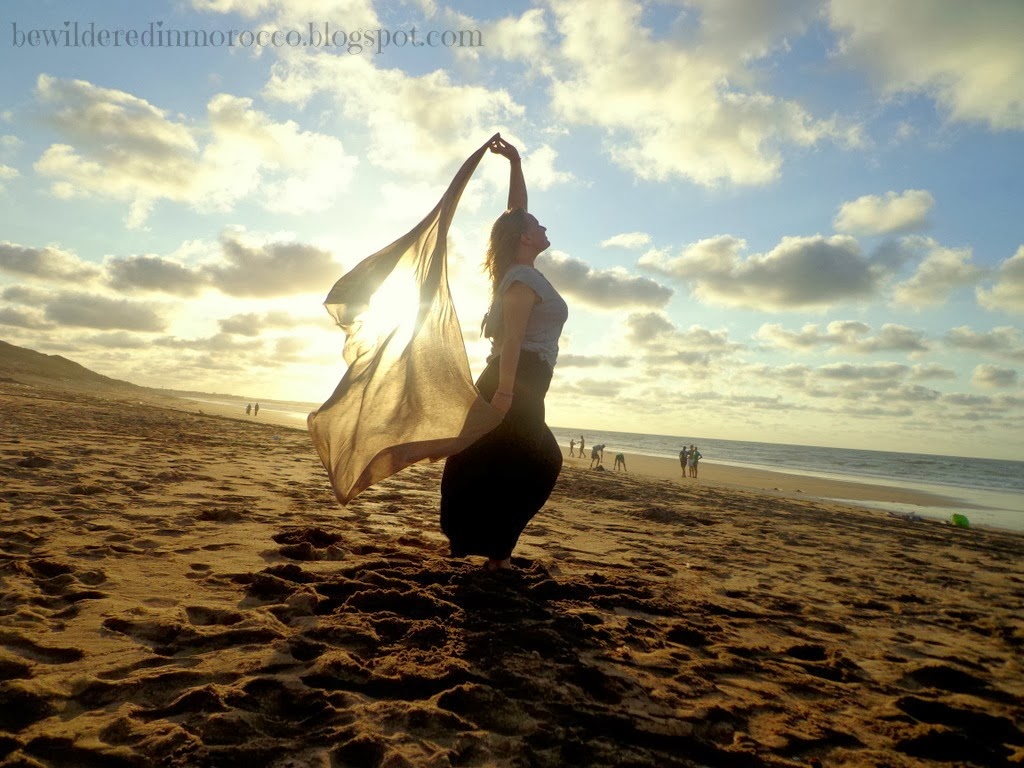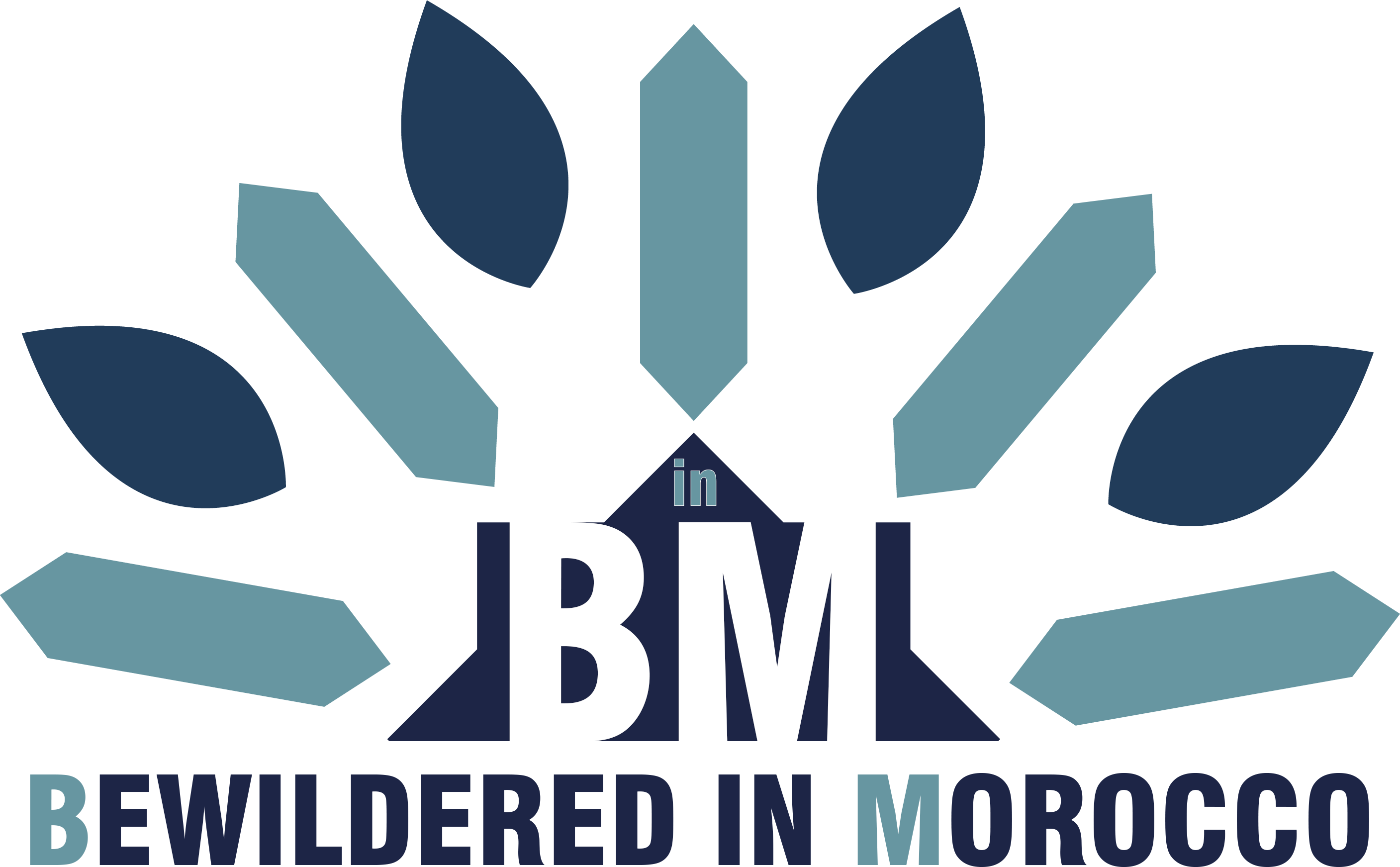Polish people drink vodka to warm up during winter. Women wearing hijabs are suspicious. Spaniards are the best lovers. Arabs are terrorists...
Sound familiar? There are countless false stereotypes about every nation, religion, and culture. When I moved to Morocco over a decade ago, friends bombarded me with sometimes hilarious, sometimes concerning questions. There's nothing wrong with curiosity – the more you ask, the more you learn! So I'm here to clarify some things and debunk the most persistent stereotypes about my adopted home.
"Why Aren't You Tanned? Don't You Live in Africa?"
Temaris beach - Yes, we have stunning beaches, but I don't spend every day there!

Temaris beach, September 2013
Yes, Morocco is an African country. And for many Europeans, "Africa" automatically equals "scorching sun 24/7/365." I remember arriving with a suitcase stuffed with summer clothes, sandals, and not a single jacket or warm sweater. Big mistake!
When I visited Poland one December, everyone's first question was, "Why are you so pale?" They assumed living in Africa meant I'd be "brown as chocolate." The truth? I don't spend all day at the beach, and I work indoors like most people.
While Morocco enjoys sunshine most of the year, we do experience seasons:
- Winter (December-February): Temperatures can drop to 5°C (41°F) in coastal cities and below freezing in the mountains. It rains regularly, and yes, it even snows in the Atlas Mountains!
- Spring & Fall: Absolutely gorgeous with mild temperatures.
- Summer: Hot and dry in most regions, with coastal areas benefiting from ocean breezes.
"All Moroccan Women Look Like Ninjas, Right?"
Sorry to disappoint the stereotype enthusiasts, but no. Morocco is not Saudi Arabia, and Moroccan fashion is as diverse as the United Nations.
In 2025, Moroccan women's fashion represents a beautiful spectrum:
- Most young women in cities dress similarly to their European counterparts
- Many choose to wear a hijab (headscarf) with modern clothing
- Some prefer traditional djellabas (long, loose-fitting outer robes)
- Very few wear niqabs (face coverings) or burqas
- In upscale neighborhoods like Ain Diab in Casablanca or Marina in Agadir, you'll see women in trendy, revealing outfits
What's fascinating is how seamlessly many Moroccan women blend traditional and modern elements in their style. A friend might wear jeans and a T-shirt with a colorful traditional scarf, or pair a djellaba with designer sunglasses and sneakers.
"Poor People, No Alcohol There!?"
Yes, you can find Polish vodka in Morocco!
Another misconception shattered! While Morocco is predominantly Muslim, it's also relatively liberal compared to many Islamic countries. Morocco actually leads alcohol production among Arab countries.
You'll find:
- Excellent local wines (red, white, rosé, and yes, even gris/gray wine)
- Local beers like Casablanca and Flag Speciale
- Imported spirits including vodka, whiskey, and rum in licensed stores
Alcohol isn't cheap though—prices are closer to Western European levels than what you might expect. And while drinking is legal, public intoxication is frowned upon and best avoided.
"Morocco is in France, Right?"
This confusion usually comes from mixing up Morocco and Monaco. To set the record straight:
- Morocco is a North African country with Atlantic and Mediterranean coastlines
- Monaco is a tiny principality on the French Riviera
Morocco was a French protectorate from 1912 to 1956, which explains the widespread use of French alongside Arabic. But Morocco has been an independent kingdom for nearly 70 years with its own rich cultural identity that blends Amazigh (Berber), Arab, African, and Mediterranean influences.
"Moroccans? Arabs? Muslims? Terrorists?!"
My all-time favorite stereotype to debunk! Thank you, sensationalist media, for the brainwashing.
Moroccans might "terrorize" you with their:
- Overwhelming hospitality (prepare to drink endless glasses of mint tea)
- Curiosity about visitors (questions about your country, family, and sometimes marital status)
- Generosity (refusing a gift can be considered rude)
Like anywhere, you'll encounter all sorts of people. Most Moroccans are welcoming, cheerful, and genuinely interested in cultural exchange. Of course, as in any country, you'll occasionally meet less pleasant individuals. But painting an entire nation with one brush is always misguided.
Morocco has worked hard to combat extremism and promote moderate Islam. The country's religious leadership regularly speaks out against radicalism, and Morocco shares intelligence with Western nations to prevent terrorism.
"Everybody Rides Camels, Don't They?"
A few days ago, my grandmother asked my mom: "Does Monika's phone work there? Is she wearing that thing on her head?" after all these years!
So to clarify: Moroccans drive cars (lots of Dacias, Renaults, and Fiats, but also Mercedes and Porsches in wealthy areas), motorbikes, scooters, and use modern public transportation including a high-speed train line. Donkeys are still used in rural areas and medinas (old city centers) where streets are too narrow for vehicles.
And yes, you can ride camels – as a tourist activity in desert regions like Merzouga. But no, people don't commute to work on camels!
Expanding Your Horizons
As Muhammad said: "Don't tell me how educated you are. Tell me how much you've traveled."
I remember talking to an American who asked if we had internet in Poland because he thought it was still a communist country! These misconceptions remind me that stereotypes exist everywhere and about everyone.
The cure? Travel. Experience different cultures firsthand. Ask questions (even the "silly" ones) and be open to having your assumptions challenged.
Have you encountered stereotypes about your country? Or do you have questions about life in Morocco I haven't addressed? Drop them in the comments below!
